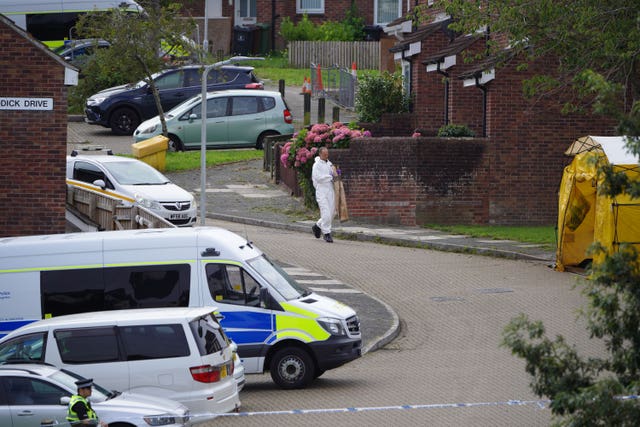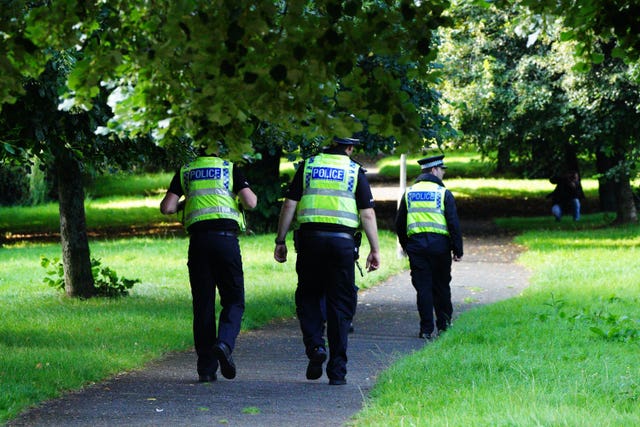Desire is shaped by social assumptions and prejudices, Amia Srinivasan argues in The Right to Sex. So what does one do about it?
This post was originally published on Dissent MagazineDissent Magazine.
People who stir up hostility on the basis of sex or gender should be prosecuted for hate crimes in an attempt to combat the “growing threat” of extreme misogyny, the Law Commission has recommended.
The legal review body said so-called “incel” culture – found among “involuntary celibate” people in an “overwhelmingly male online community” which believes society is defined by physical appearance – had the potential to lead to serious criminal offending.
Its 550-page report to the government contains 34 recommendations, and makes passing reference to the case of Jake Davison, who murdered five people in a shooting spree in Plymouth in August this year, amid claims he had “sought out Incel material and posted videos online expressing Incel sentiments”.
The Law Commission said existing hate crime offences should now be extended to cover hatred on grounds of sex or gender where “stirring up” – or incitement – is involved. It also suggested the government undertakes a review of the need for a specific offence of public sexual harassment.

Other recommendations include reforming hate crime legislation to ensure that disabled and LGBTQI+ victims receive the same protections as victims with other protected characteristics, such as race and religion.
Professor Penney Lewis, Law Commission spokesperson, said:
Hate crime has a terrible impact on victims and it’s unacceptable that the current levels of protection are so inconsistent. Our recommendations would improve protections for victims while also ensuring that the right of freedom of expression is safeguarded.
In England and Wales, “hate crimes” are generally used to refer to the aggravation of the seriousness of existing criminal offences, such as assault, harassment, or criminal damage, because there is an additional “hostility” element. Racial hate crime laws were introduced following the murder of black teenager Stephen Lawrence in 1993, and have since been further expanded to include religion, disability, sexual orientation, and transgender identity.
The Law Commission said its recommendations “would not criminalise ‘offensive’ comments”, nor criminalise those who told sexist jokes. The review said:
They (the proposed changes) would not stop people discussing differences between the sexes or articulating views on the suitability of women for positions in religious or secular authority.
What we are referring to is threatening or abusive material which incites and glorifies violence, including sexual violence, against women and girls, and praises men who murder women.
It also suggested the government ought to consider whether a “bespoke public sexual harassment offence” should be created, rather than a hate crime offence. It said:
Existing offences which currently apply to abuse and harassment of women in public spaces are quite heavily focused on threatening and abusive words, and disorderly behaviour.
A specific offence addressing public sexual harassment might be crafted in a way that better captures the degrading and sexualised nature of the behaviour that frequently occurs in these online and offline contexts.
By The Canary
This post was originally published on The Canary.
A firearms review is to be carried out into the police force which gave Jake Davison his licence and gun back just weeks before he killed five people in one of the UK’s worst mass shootings.
The inquiry into Devon and Cornwall Police’s firearms licensing procedures will be overseen by the National Police Chiefs’ Council. It’s the third investigation into the events of last week in which Jake Davison, 22, shot dead his own mother and four others in the Keyham area of Plymouth before turning the gun on himself.
The Independent Office for Police Conduct (IOPC) is already investigating the decision by the Devon and Cornwall force to return Davison’s shotgun certificate and weapon to him. They were seized in December 2020 following an assault allegation the previous September and were returned to him in July.

The government has announced firearms applicants will be subject to social media checks. All police forces in England and Wales are being asked to review their current firearm application processes, as well as assess whether they need to revisit any existing licences.
The deaths of Maxine Davison, 51, Lee Martyn, 43, daughter Sophie, Stephen Washington, 59, and Kate Shepherd, 66, as well as Davison, are also the subject of an inquiry by Plymouth coroner Ian Arrow.
The peer review was announced by Devon and Cornwall police and crime commissioner Alison Hernandez. She said:
I have spent considerable time with this community after this appalling incident and want to reassure them that we stand with them at this tremendously difficult time. Not only have they lost much-loved friends and family members but they have found themselves at the centre of a sometimes intrusive national and international media presence.
The impact of this will be felt by this community for a long time.
I want to let the people of Keyham know that after the initial attention has died down we will still be there for them. We must not jump to conclusions about the reasons for these heinous crimes but await the Independent Office of Police Conduct’s investigation, a National Police Chiefs’ Council-led inquiry into the police’s procedures and the coroner’s report as we seek to fully understand what, if any, changes may need to be made into firearms licensing procedures.
I am assisting the chief constable to organise a fast review of the general procedures of firearms licensing in Devon and Cornwall to ensure they are following national guidance correctly.
We will also be working with police and crime commissioners from around the country to ensure that if there are lessons to be learned about licensing procedures in England and Wales these will be shared with colleagues from around the country.


Earlier this week, it emerged Davison received mental health support during the coronavirus lockdown and had been in contact with a telephone helpline service in Plymouth run by the Livewell Southwest organisation.
Social media usage by Davison suggested an obsession with “incel” culture, meaning “involuntary celibate”, as well as an interest in guns and the US.
Reports have suggested Davison’s mother had been struggling to get help for her son, having become concerned about his mental health.
By The Canary
This post was originally published on The Canary.